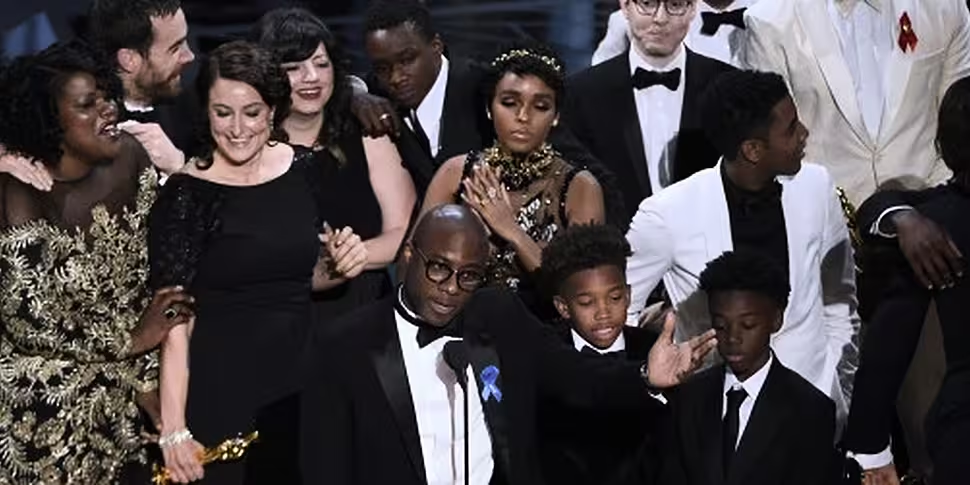For once, the Oscars were actually interesting.
I have long since tuned out of the annual Hollywood awards circus, such is its tendency towards predictability and general Hollywood back-slapping. Every year offers an incredible variety of films, and yet the Academy has long-since proven itself ill-equipped to address that variety (only a single foreign language film has made the 'Best Picture' shortlist in the past decade, for example).
It goes without saying that occasionally some excellent films receive the biggest award at the Oscars; of the recent 'Best Picture' winners, the fearless & powerful 12 Years a Slave stands out despite its inherent Oscar-friendliness. But all too often the Academy voters fall back on safe, awards-friendly fare - films that often boast noteworthy qualities, but rarely represent the cutting edge of modern cinema.
This year was different, even allowing for the inevitable omission of countless great films from across the world.
The immediate coverage has understandably been dominated by the flub to end all Oscar flubs - the mistaken announcement of La La Land as the winner of 'Best Picture'. As anybody who has been in the vicinity of a radio, TV or smart device today will know, the actual winner was Moonlight (total respect is due to the cast & crew of La La Land for handling the devastating on-stage revelation with such grace and class).
What shouldn't get lost in the chaos, however, is the magnificence of Moonlight's win.
This was, it should be stressed, an exceptionally good year with some outstanding nominations. Manchester by the Sea is a heartbreaking masterpiece, although sadly had little chance of taking the top prize. La La Land, meanwhile, had been hit with a mounting backlash on what appeared to be its path towards a clean sweep - but that felt a tad mean-spirited, given it's a lovingly crafted film and an endearingly bittersweet twist on your average Hollywood musical (although it wears its Umbrella of Cherbourg inspirations with pride).
A true underdog
Even when the competition was strong, though, Moonlight stood out. Here was a beautiful piece of filmmaking quite unlike anything else out there. It was an underdog, made on a mere fraction of the budget enjoyed by other contenders. It is among the quietest, most subtle films to ever grace a 'Best Picture' shortlist. Compared to the immediate technicolour thrills of La La Land, it is a slow-burn film where the story plays out not in massive climaxes but through a series of understated, intimate moments.
A year after the #OscarsSoWhite controversy, some will be tempted to dismiss Moonlight's victory as tokenistic course correction. What better way to address a diversity controversy than awarding the top prize to a film about the coming-of-age of a gay black man? But even if there is some symbolic importance to the win - especially in 2017 - Moonlight is much, much better than a mere symbol.
Indeed, one of the things that's so remarkable about the film is how it addresses its themes in such a nuanced way - in stark contrast to the Academy's historic preference for blunt, on-the-nose storytelling. More than ten years after the much-criticised choice to reward 'Best Picture' to Crash, here instead is a film that tackles the issue of black identity with the utmost care, intelligence and nuance. It is a film with a borderline allergy to overstatement - such themes are instead baked into the very DNA of what is first and foremost a heartbreaking, intimate story of one boy's experience through to adulthood.
Also noteworthy is how it subverts the expectations of films. Many plot beats purposely echo the sort of stories we see across countless crime films - Chiron's journey is one through a world of drugs, poverty, prison and violence. But Jenkins tackles the material with uncommon compassion and humanity.
It's easy to see, for example, how drug dealer Juan (Mahershala Ali - a deserved winner of the 'Best Supporting Actor' statue) would be a villainous character in another film with a similar plot. Instead Jenkins dives deeper to find the more complex human being underneath.
Similarly, while Chiron's journey takes many dark, heartbreaking turns, there's also a fundamental optimism that helps us see beyond the tragedies he experiences. Jenkins wants us to see his characters not as archetypes but as individuals with very real fears, frustrations, hopes and dreams.
The complete picture

Alex Hibbert and Mahershala Ali in 'Moonlight' [A24]
Whereas some films coast along to the Oscars on the back of a few strong performances, Moonlight is the complete picture. The cast is uniformly excellent, including three actors who are completely convincing as the protagonist. The original score is potent but rightly allows the narrative to mostly speak for itself.
The cinematography is simply magnificent - from the long tracking shot that opens the film right through to the intimate closing moments, the camera is always allowed to witness the drama in a way that is unhurried and respectful. There is mesmerising use of colour, the whole film often feeling like it is taking take place in a dream-like haze.
And then there's the Florida ocean - the setting suggestively revisited on several occasions throughout the film at key moments of revelation for Chiron. It's the sort of simple but evocative directorial decision that separates a great film from merely a good one.
Moonlight, then, should be remembered not just for those awkward moments on an LA stage. It is one of the most deserving & daring 'Best Picture' recipients in a very long time, enjoying pride of place with some of the timeless masterpieces that received the award back in the 1970s.
There were many films who earned their nominations this year, and many deserved winners across the other categories. But even in a year when the competition was so strong, there's cause for extra celebration: because, in a genuinely surprising moment, the best film won.









